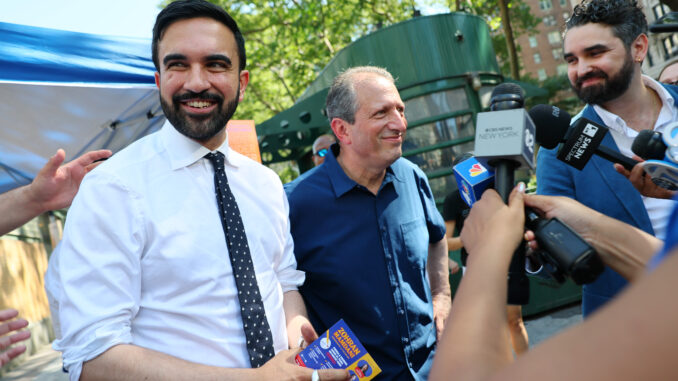
“`html
The political landscape of New York City is known for its dynamism, its surprises, and its often unpredictable electorate. Yet, even in this context, the prospect of State Assemblyman Zohran Mamdani surging to a commanding lead in the Democratic Primary for Mayor felt, until recently, like something out of political fiction. The establishment candidates, with their deep pockets and established networks, seemed poised for a predictable, albeit contested, battle. Mamdani, a young, progressive voice known for his passionate advocacy for housing rights and socialist ideals, was seen as a long shot, a compelling figure with limited mainstream appeal. However, a confluence of factors, coupled with a meticulously crafted campaign, propelled Mamdani into an unexpected position of power, reshaping the race and sending shockwaves through the city’s political establishment.
The Rise of the Unexpected: How Zohran Mamdani Seized the Spotlight
Several key elements contributed to Mamdani’s improbable ascent. First and foremost was the palpable discontent amongst younger voters and working-class families feeling increasingly marginalized by rising rents, stagnant wages, and a widening wealth gap. Mamdani’s message, rooted in social justice and offering bold solutions like universal rent control and a Green New Deal for New York City, resonated deeply with this segment of the population.
Beyond this resonant message, Mamdani’s campaign strategically leveraged several opportunities:
- Effective Digital Organizing: The campaign harnessed the power of social media and online organizing to build a grassroots movement, bypassing traditional media gatekeepers and directly engaging with potential voters. This allowed them to circumvent the narrative often presented by more established political outlets.
- The “Candidate of the People” Narrative: Mamdani consciously cultivated an image of being an outsider, untainted by corporate interests and beholden only to the needs of ordinary New Yorkers. This contrasted sharply with the perceived elite status of his rivals.
- Strategic Coalitions: The campaign forged alliances with various activist groups and community organizations focused on issues ranging from environmental justice to criminal justice reform. These coalitions provided critical on-the-ground support and amplified Mamdani’s message within diverse communities.
Moreover, a series of missteps by the frontrunners played directly into Mamdani’s hands. Infighting amongst the establishment candidates, coupled with scandals and gaffes that dominated the news cycle, created an opening for an alternative voice. This allowed Mamdani to position himself as the clear choice for voters seeking a genuine break from the status quo. The other candidates, distracted by their internal power struggles, seemed to underestimate the rising tide of support behind Mamdani, a critical strategic error that ultimately proved decisive.
The primary race remains far from over, and the establishment candidates are certain to recalibrate their strategies and intensify their attacks. However, Mamdani’s unexpected surge has irrevocably altered the dynamics of the election. Whether he ultimately triumphs or not, his campaign has demonstrated the power of grassroots organizing, the importance of authenticity, and the enduring appeal of progressive ideals in a city grappling with profound social and economic challenges. This election serves as a potent reminder that in politics, as in life, anything is possible.
“`
